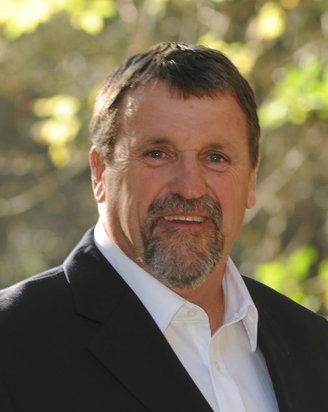Various movers and shakers around California spent the last few months engineering a scheme to tax the drinking water of everyone in the state. This plan — designed to fund a cleanup of Big Ag’s groundwater pollution in the Central Valley and elsewhere — died in the legislature yesterday, when it became clear that it wasn’t going to get the two-third supermajority that it required in the legislature.
Why should we tax everyone’s water to clean up the arsenic and other toxins that agribusiness pumps into the water table? Why shouldn’t, uh, agribusiness pay for it? It’s a question. The Bee, at the link above, quotes a state senator from Riverside who said that his constituents wouldn’t be too thrilled about having to kick in to fix other people’s problems.
“They’re going to spend a dollar a month to (go) where, Eureka?” said Sen. Richard Roth. “Nothing against Eureka, but I doubt people know where that is.”
Roth doesn’t know where it is, either — in fact, none of the municipal water in Humboldt County suffers from the problem the water tax was designed to solve. The poisoned municipal wells are almost all in the San Joaquin Valley and the like, where farmworkers pay for the water their employers have made undrinkable.
But the proposal is dead (for now) and that is all beside the point. You want to know what the point is?

Rex Bohn, author.
The point is that our own Supervisor Rex Bohn, who now serves as the chairman of the Rural County Representatives of California — an inter-county “service organization” and schmoozefest — was all for the water tax, and was so all-for-it that he sat down and put quill to parchment, organizing his extensive research and his own insights in a tightly argued and persuasive essay the Times-Standard published on May 17.
Check out this excerpt, which sounds extremely like Rex!
Too often, California residents who help produce our food can’t drink their own local water without getting sick and fearing serious illness. In over 300 communities across the state, contaminated water has forced schools to turn off faucets and residents to buy bottled water for drinking, cooking and washing.
A similar situation impacting families in our large cities or suburbs would ignite political upheaval. Emergencies would be declared. Solutions would be quickly forthcoming, regardless of the cost.
But in poorer, less populated regions of California, where water customers often rely on small water systems and private wells, the problem persists. Many smaller systems can’t afford to treat contaminated water.
Some who don’t know Supervisor Bohn very well might have been surprised to hear him advocate for new taxes — and on the very water we drink, of all things.
They might likewise have been surprised to hear him speak approvingly of “social justice and environmental groups,” as he does elsewhere in the essay, or to hear him use phrases like “quickly forthcoming,” “a bipartisan alignment of legislators” or “potentially transformative impact.” But as true Bros of Rex read along, they could hardly avoid hearing the man’s own voice narrating his words to them, like an audiobook of the mind, and they were undoubtedly won over. I haven’t seen any recent polling, but I assume everyone in the First District is now very much in support of lots and lots of new taxes on drinking water.
Wait a second, though! Looks like our money isn’t the only thing the Central Valley interests are after — they’re coming for our words, too! Here’s Kuyler Crocker, a supervisor from Tulare County and a fellow member of the Rural County Representatives of California, writing for gvwire.com at the end of last month:
Too often, residents who help produce our food can’t drink their own local water without getting sick fearing serious illness. In roughly 300 communities across the state, contaminated water has forced schools to turn off faucets and residents to buy bottled water for drinking, cooking and washing.
A similar situation in our large cities or suburbs would ignite political upheaval. Emergencies would be declared. Solutions would be quickly forthcoming, regardless of the cost.
But in poorer, less populated regions of California, where water customers often rely on small water systems and private wells, the problem persists. Many smaller systems can’t afford to treat contaminated water.
Hey, Crocker — apologize now, you snake. Our representative put his powers of persuasion and his considerable political capital in service of your cause, and you repay him by taking his words and putting them under your own name. Is that how a member of Saddleback Church and Facebook friend of Rep. Devin Nunes is supposed to comport himself?
CLICK TO MANAGE